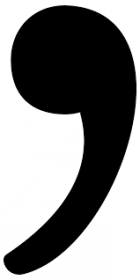Top tip on email etiquette: punctuation matters, even on the least formal email and the apostrophe is one of the least-understood marks. One of the difficulties in writing email is that it has replaced so many forms of business communication from the telephone conversation, through the informal memo, to a letter even a short report. Whatever the formality of the document, it is the punctuation that gives your words voice tone and makes your meaning clear.
Over 90% of the people who attend my in-house workshops on punctuation name the apostrophe as the mark they would most like to understand and be able to use correctly. Whether it’s whether one is needed at all, whether to place it before or after the ‘s’ and how to use it when names end in ‘s’.

Email Etiquette: Punctuation Matters
Most people look blank when faced with rules such as, place the apostrophe after the ‘s’ on a plural unless the plural is not made by the addition of ‘s’ in which case the apostrophe is placed before the ‘s’. And who can blame them!
One of the best-kept secrets in punctuation is that there is actually only one rule that matters, because it encompasses all the other ones and ensures that the apostrophe is always in the right place.
Before you can use the rule you have to answer three simple questions:
1.Is anything owned?
The apostrophe is a hook, it hangs on a word to warn the reader that it is not a plural, the ‘s’ indicates ownership.
2.What is owned?
This might be something tangible like a pen or laptop, or something less so like an office. It might be a mood, feeling or advice. The terms ‘owned’ or ‘used’ are generally used to loosely describe this.
3.Who is the owner?
This might be a named person, a group, and organisation, etc.
So the punctuation rule that everybody needs? Draw a circle around the name of the owner and the apostrophe will always go on the circle.
Good email etiquette and punctuation means its easier for people to read your email and less scope for mis-understanding. All this saves time, reduces email overload and hence helps improve productivity and well-being.
Joanna Gutmann, author of Readability and leader of in-house workshops on punctuation and the mechanics of writing gives a useful tip to get the apostrophe right every time.
Tags: email etiquette, email punctuation, Improve productivity, Joanna Gutman, well being